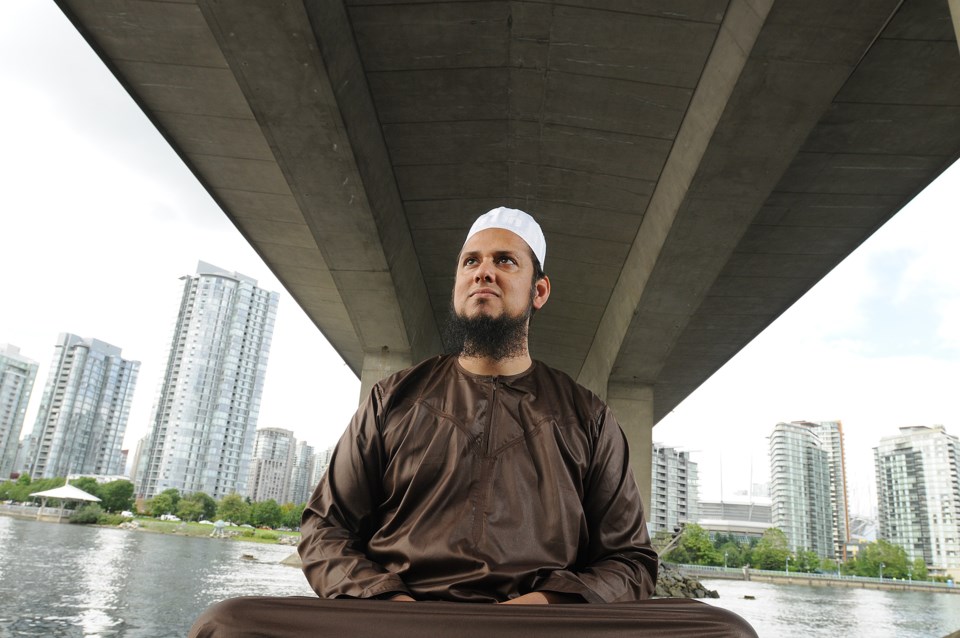Ramadan, the holiest month in the Muslim calendar, begins Friday tonight — or maybe tomorrow night. Because the turn of the lunar calendar depends on the first sighting of the new moon, it is the naked eye, not a printed calendar that will determine the start, says Mufti Aasim Rashid.
Rashid acknowledges that the skies over Vancouver are rarely as clear as the skies in places where larger numbers of Muslims live. So, by the time local Muslims wake up today, or at least by the afternoon, millions in Asia, Africa and Europe will have seen (or not seen) the moon.
This provides West Coast Muslims with a form of religious crowdsourcing unthinkable just a few decades ago before the Internet and routine long-distance calling.
Whether it begins tonight or tomorrow night, Ramadan will usher in either 29 or 30 days of extraordinary spiritual reflection and self-denial.
The ninth month in the Muslim calendar, Ramadan is when tradition says the Quran was revealed.
For observant Muslims, the most outwardly visible rituals associated with the holy month will involve the schedule of eating and sleeping. During Ramadan, Muslims fast from dawn to dusk.
“The major change for most people is their time for waking up,” says Rashid, “because we fast from dawn, which means that we must eat before dawn, and dawn right now is very early, almost at 2:45.” Because the lunar calendar is not fixed to the Western solar calendar, Ramadan can occur at any time of year. The long days and short nights of summer make the observance of fasting rituals extra challenging.
“People will be getting up very early,” Rashid says. “Many people will just opt to sleep after they eat the morning meal.” Breaking the fast after sundown usually begins with dates and water but, beyond that, the meals are a matter of culture and taste.
Rashid will eat the same sorts of meals he eats year-round, but with more emphasis on high-nutrition foods, because he knows the meal has to carry him for most of the next 24 hours. (He also has a background in naturopathic medicine.)
While Muslims’ five-times-a-day prayers can take place anywhere, during Ramadan, an added emphasis is placed on attending the mosque. Over the course of the month, the entire Quran will be recited at mosques worldwide. The final days of Ramadan have additional reverence, with some staying at mosque for the entire 10 day period.
“The last 10 nights are by themselves something very special because many Muslims go into a spiritual retreat on those nights,” he says. Within those 10 days is Laylat al-Qadr, the Night of Power, when Muslims believe the Quran was revealed by Allah, God, to the Prophet Muhammad.
The exact day is not specified in the Quran, though it is on one of the odd nights in the final 10 days.
“It’s a special night of mercy and forgiveness and if you’re fortunate enough to be worshiping on that night, there’s a lot of special blessings to be attained,” he says.
Rashid, who is originally from Edmonton, studied in Toronto, India, and the U.K. before learning Islamic law at the postgraduate level at the University of Islamic Studies in Karachi, Pakistan, where he received the “mufti” designation. A mufti is a Muslim legal scholar qualified to issue interpretations, called fatwas, on sharia, Muslim law. Here in B.C., muftis are extremely rare.
“There may be one more,” he says.
Rashid, who has been in the province for about five years, is director of Islamic education for the B.C. Muslim Association, a Sunni umbrella group.
He also runs an educational institution.
Because Ramadan is the month when the Quran was received, it is a time of intensive dedication to the message of spiritual purification and devotion inherent to the holy book. Ramadan is also a time for Sadaqah [charity] While Muslims are encouraged to give year-round, special blessings may be attained by charitable acts during the holiest month.
“Pushing yourself in an act of worship and devotional acts — that itself is a purifying experience,” Rashid says. “Those acts and those worships are a spiritual detox in many ways. The second thing is the whole focusing on the lesson behind Ramadan, which is to teach self-restraint and self-discipline. So food, which is absolutely permissible, you’re voluntarily abstaining from, even though you have direct access to it. Similarly, there are many other things that we have access to but we practise staying away from them.”
He adds: “It’s all about discipline and control in our lives. Muslims believe in one God, we believe in his prophets. To become the personality that God and his prophets have told us to be, it takes a lot for a person to walk on that path. Ramadan is here to help us do that.”



